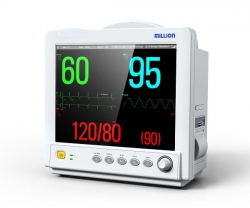Wechat QR code

TEL:400-654-1200

TEL:400-654-1200

Even bones get fat without exercise
Yes, there's fat in your bone marrow, too.
The study found that exercise -- running -- reduced the volume of fat cells in the bone marrow of obese and lean mice. However, only obese mice showed significant declines in the number of fat cells in their bones.
"It's well known that exercise strengthens bones." "However, the benefits in obese mice go beyond that," said Dr. Maya Styner, assistant professor of endocrinology and metabolism at the university of north Carolina at chapel hill, who led the study.EEG machine
However, it remains to be seen whether this finding will be applicable to humans, as studies on mice cannot translate directly to humans." Still, Styner points out, "the type of stem cells that make bone and fat in mice are the same type of cells that make bone and fat in humans."

Fat cells in the bone marrow
Bones and bone marrow are more active than we think. Bone marrow, in particular, is an active center that coordinates bone and cartilage formation and produces blood cells, immune cells, and cancer cells. Bone marrow also produces fat, which is what makes bone dishes so delicious. But the physiological role of bone marrow fat in the body -- whether it's good or bad -- remains unclear.
In general, bone marrow fat is thought to be different from other types of body fat and not a source of energy during exercise.
But the new study contradicts that view. Styner also provides a basic insight into how bone marrow fat is formed and its impact on bone health. Previous studies have shown that excess bone marrow fat increases the risk of fractures and other problems.EEG machine
Obese mice that exercised had less bone marrow fat
Magnetic resonance imaging of femur in mice. Lfd-e refers to mice on a low-fat diet and exercise. Dio-e refers to mice whose high-fat diet caused obesity and exercise. Red indicates less fat in bone marrow. Green, blue and purple show higher fat.
The researchers prepared two groups of mice: 14 lean mice fed a normal diet, and 14 fat mice fed a high-fat diet. At four months, half the fat mice and half the thin mice were given a running wheel.
After six weeks, bone measurements showed an increase in bone density of about 20 percent in the thin and fat mice that exercised. The size of the fat cells also shrank significantly in the mice that ran regularly. However, there was no significant change in the number of fat cells in the bones of the lean mice, while the fat mice that exercised had half as many fat cells as the fat mice that did not move. The results also showed that exercise improved bone thickness, particularly in obese mice.
All this suggests, says Styner, that bone marrow fat can be burned with exercise, which is good for bones. "Obesity seems to increase fat stores in the bones, just as it does in the abdomen and other parts of the body. Exercise reduces the size of fat stores and burns them as fuel, while building stronger, larger bones."
However, Styner says little is known about the "underlying physiology" behind fat storage. The effect of exercise on the fat content of bones is still hazy. For example, the exact relationship between burning bone fat and building stronger bones. It may be that when fat cells are burned during exercise, bone marrow USES the energy released to produce more bone mass. It could also be that since both fat and bone cells come from mesenchymal stem cells, exercise might stimulate these stem cells to produce more bone cells and fewer fat cells.
She says the focus is on continuing animal research. But the study could eventually point the way in the maintenance and improvement of bone health in patients with diabetes, arthritis, anorexia and long-term steroid use.